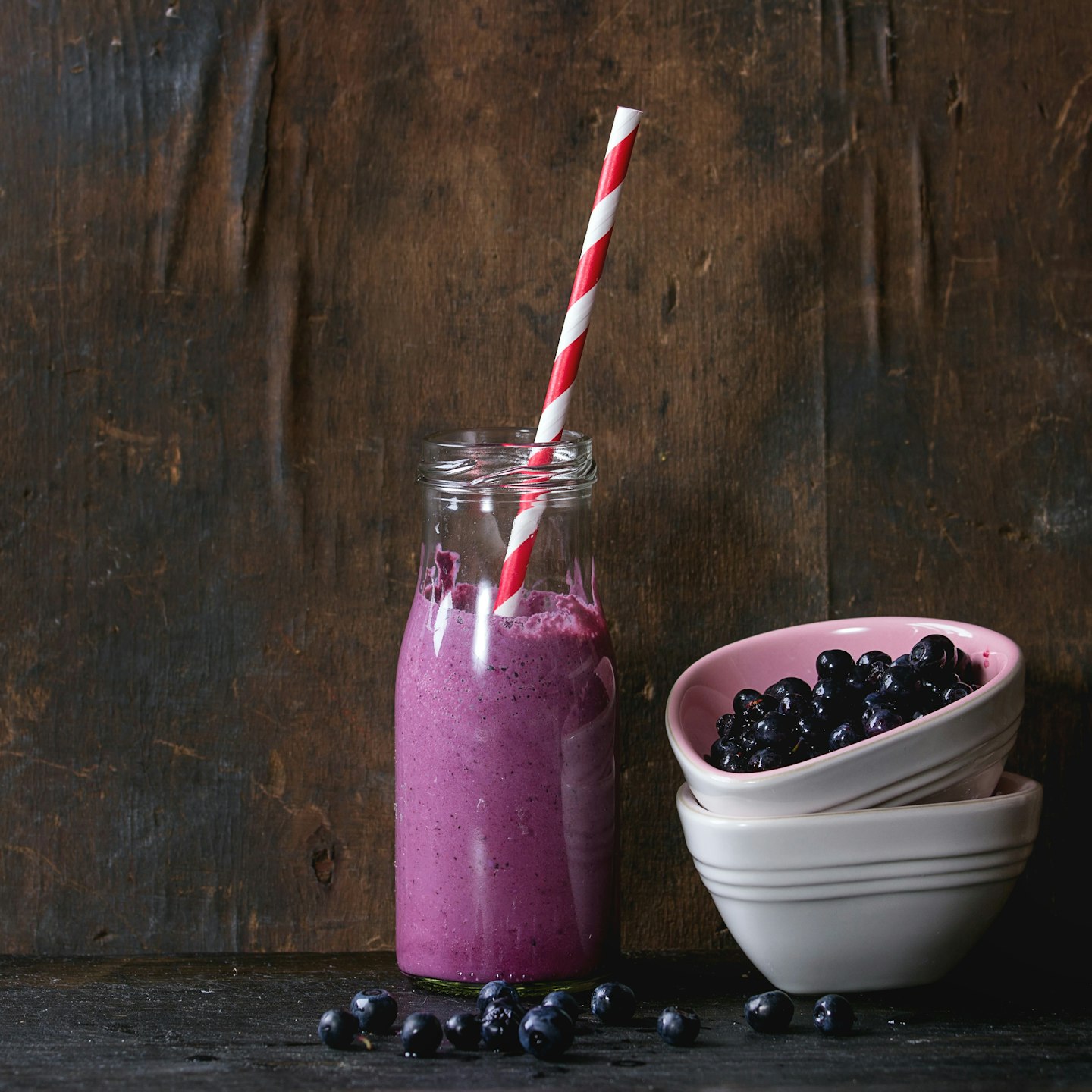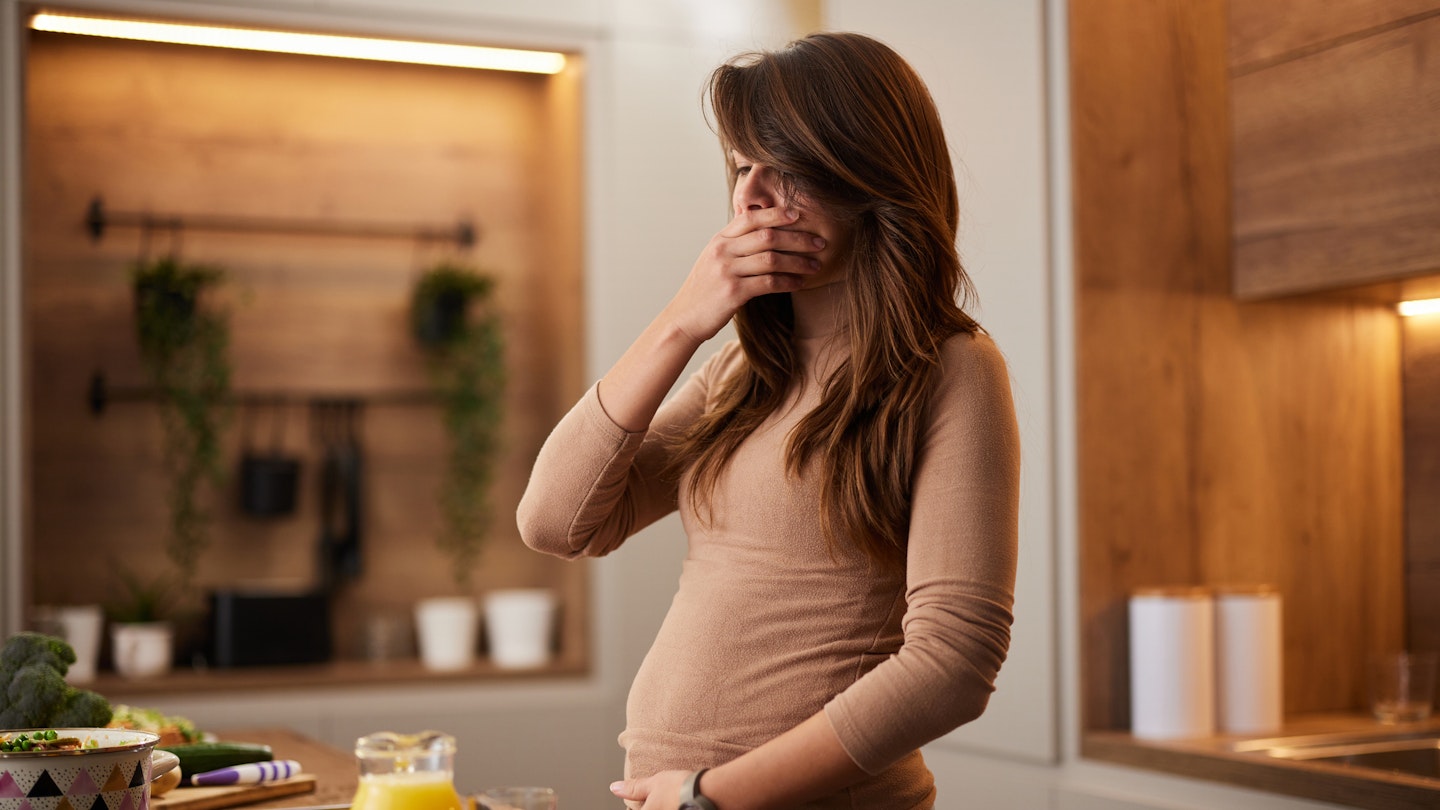If you're pregnant and find yourself hunched over the toilet more times than you'd care to remember, chances are you are experiencing morning sickness.
Although it's an entirely normal side effect of pregnancy, to feel nauseous (blame the increase of pregnancy hormone hCG!), it can feel debilitating to spend what feels like half your time rocking back and forth on your bathroom floor.
What's worse is that, although it may be called morning sickness, many pregnant women find that nausea and sickness can strike at any time.
Put the dry crackers aside, and don't panic. We’ll show you how to beat it, plus yummy, sickness-busting superfoods to fill your plate with.
What is morning sickness?
Around 90% of women experience some form of morning sickness during their pregnancy. Some get away with just mild nausea, while others can suffer from frequent vomiting that leaves them feeling debilitated.
‘In the first trimester, the sudden increase in pregnancy hormones can cause nausea while, in the last three months, your baby pressing on your stomach can make you feel sick,’ says midwife Sarah Denning.
What are the symptoms?
Some women are physically sick, while others feel nauseous. ‘You may feel tired and listless, especially if you’re not getting many fluids and are dehydrated,’ says Sarah.
Some women feel dizzy and find they can’t move around much as it worsens their nausea.
The seven symptoms for morning sickness are:
-
Persistent excessive vomiting (more than 3 or 4 times a day)
2. Unrelenting, severe nausea
3. Headaches and confusion
4. Dehydration
5. A decrease in urination due to dehydration
6. Rapid heartbeat
7. Maternal weight loss or failure to gain weight
When to call your GP
You should call your GP if you're vomiting and have the following symptoms:
-
have very dark-coloured urine or have not had a pee in more than 8 hours
-
Are unable to keep food or fluids down for 24 hours
-
Feel severely weak, dizzy or faint when standing up
-
Have tummy (abdominal) pain
-
Have pain or blood when you pee
-
have lost weight
What’s the cause of morning sickness?
‘The most popular theory is that morning sickness is your body’s reaction to the pregnancy hormone hCG,’ explains obstetrician-gynaecologist Dr Laura Sirott. You’ve probably heard of this hormone, it’s the one that made those two little blue lines magically appear in your pregnancy test. It’s first produced when you become pregnant and then makes you produce more progesterone, a chemical that keeps your placenta working properly and the lining of your uterus healthy.
It also keeps your uterus relaxed, allowing your baby to grow bigger – and bigger, and bigger.
But it doesn’t stop there. Scientists think that as well as relaxing your uterus, it relaxes your digestive system. This slows down how quickly you digest food and can give you acid reflux, where digestive juices leak upwards into your oesophagus, which is enough to make anyone feel ill.
Studies also suggest that morning sickness may have evolved over thousands of years to protect mums-to-be from food poisoning until their developing baby is strong enough to survive it. It doesn’t harm your child’s health unless you can’t keep food or drink down for a long time.
‘There’s even an upside,’ says Laura. ‘Morning sickness is associated with a reduced risk of miscarriage and better developmental outcomes for the baby.’
When does morning sickness start?
Morning sickness usually starts during the first trimester at about five or six weeks pregnant, it is often the first indicators of pregnancy.
My morning sickness feels worse than normal
We know being sick is gloomy and sometimes quite isolating, but the good news is, chances are nothing is wrong with you or your baby, this is all supposed to happen. So, as long as you're drinking lots of water and not losing weight, then your baby's wellbeing should not be affected.
However, if you are throwing up very frequently and unable to leave the house due to severe nausea, you could have a condition called Hyperemesis Gravidarum. Kate Middleton suffered with it throughout all her pregnancies, and thanks to the exposure of the condition, HG is now starting to be recognised by medical professionals as very incapacitating.
Having been described in this way - "HG is morning sickness like a hurricane is a little bit of rain”, you can imagine that the condition will make you violently nauseous. In fact, it can cause you to throw up, up to 50 times a day.
You’re more likely to develop HG if you’re:
-
Having a multiple birth
-
If your mum or sister had the condition while they were pregnant
-
Or if you’re prone to migraines, headaches and travel sickness.
Although the condition itself won’t harm your child, the effects of dehydration and being unable to keep down food can affect the healthy growth of a baby. If you are experiencing symptoms like these, book an appointment with your doctor immediately and he/she can provide the best advice going forward.
How long will morning sickness last?
Your morning sickness should subside between 14 weeks pregnant and 16 weeks, but for some women, it can continue a little longer. For an unfortunate few, it lasts throughout pregnancy, but fingers crossed that's not you!
How to help get rid of morning sickness
But what can you do when your morning sickness is so severe that you can’t put up with it any more?
A lot of the research suggests that timing is important.
‘Eat little and often, advises Laura. ‘You don’t want to empty your stomach, or to overload it, as either of these can aggravate your morning sickness.’ And be aware of your fluid intake. It’s essential to stay well-hydrated, but eating and drinking at the same time can increase nausea by making your stomach feel fuller. Instead, wait for 20 minutes after eating before having a drink.
Keeping a diary can be helpful if you want to work out exactly when to eat. A 2010 review found that around 85 per cent of women suffering from morning sickness have at least two episodes a day. If you keep a diary of your symptoms you are likely to see a pattern emerge, including times when you feel better, so aim to eat then.
There are also certain DIY treatments that can really help keep sickness pangs at bay. From religiously taking ginger supplements to creating bespoke aromatherapy, many mums swap by these morning sickness remedies.
What if I get morning sickness on the go?
The NHS recommend){href='https://www.nhs.uk/pregnancy/related-conditions/common-symptoms/vomiting-and-morning-sickness/#:~
Things you can try yourself:
If your morning sickness is not too severe, your GP or midwife will recommend you try some lifestyle changes.
These may include plenty of rest, avoiding foods or scents that make you want to throw up, nibbling on dry toast, opting for smaller yet frequent meals of plain foods that are high in carbohydrate and low in fat, and drinking water.
Are there foods and drinks in particular that can help?
Of course, what you eat is also important. Snacking on nuts and other high-protein snacks can relieve symptoms, and always avoid foods with a strong smell or that are spicy or fatty. ‘Work out your “trigger foods” that make you feel nauseous, and avoid them,’ says Laura.
If you feel like you can’t stomach any food at all, then many mums find the 'BRAT’ diet: Bananas, rice, apple sauce and toast works when all else fails. These are some of the best foods to eat for morning sickness. It’s low in fat, easy to digest and replaces any nutrients you might have lost through being sick. Talk to your doctor before making any big changes to your diet, however.
What are the best breakfasts to ease your morning sickness?

Even the ingredients in your morning breaky can help the symptoms of morning sickness. From delicious avo smoothies to eggs on wholemeal toast, there are lots of breakfast ideas to ease morning sickness that won't leave a bad taste in your mouth. You may also want to swap your morning cuppa out for a cup of ginger tea when you're pregnant, as many mums swear by this for easing nausea.
Foods you can eat once the morning sickness has stopped:
Once you have stopped vomiting, its recommended that you eat small amounts of plain, cold or room temperature foods with very little smell, for example:
-
Toasted white bread.
-
Mashed potatoes
-
Crackers
-
Fruit
-
Graham crackers
-
White rice
-
Plain hot cereal
-
Plain white pasta
-
Pretzels
Spicy or high-fat foods, citrus juice, milk, coffee, and tea with caffeine often make nausea worse.
Pregnancy food aversions
Remember, while you might start enjoying certain food more and having pregnancy cravings, there is every chance that you might experience some food aversions during your pregnancy too.
These may also be related to your morning sickness as both of these things are connected to your hCG levels. Everyone is different so above all, listen to your body and don't worry, before you know it you'll be past morning sickness and looking forward to the arrival of your new bundle of joy.
Mummy to a little girl, Adejumoke Ilori is Commercial Content Writer for Mother&Baby. With a BA hon in Creative Writing, she has worked for digital platforms, where she has empowered women from the inside and out, by sharing real life stories based on relationships, loving yourself and mummyhood.
